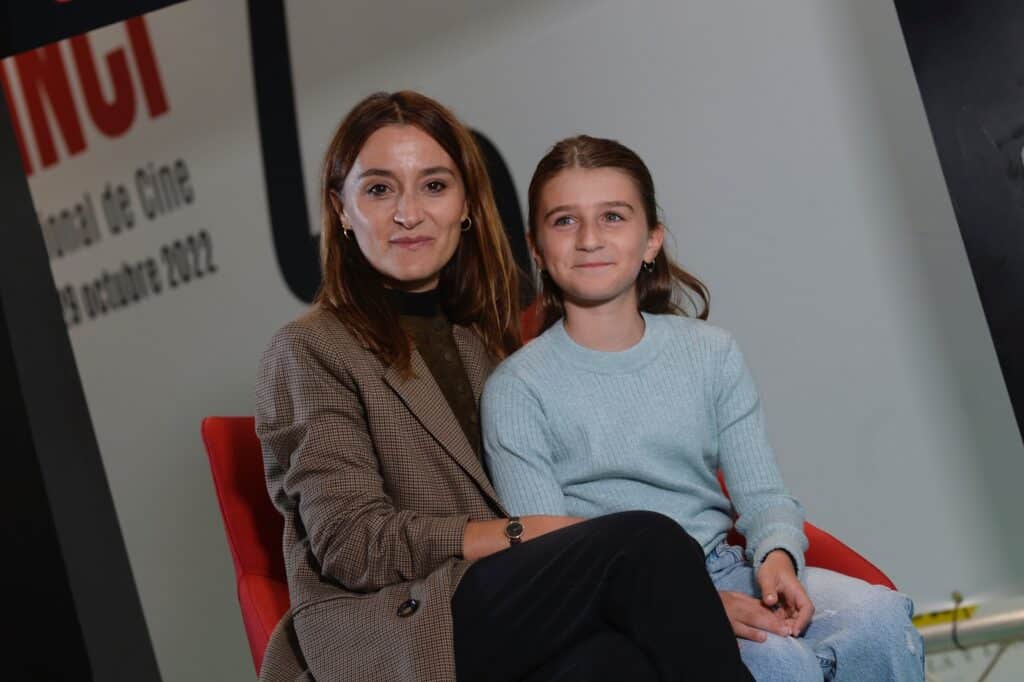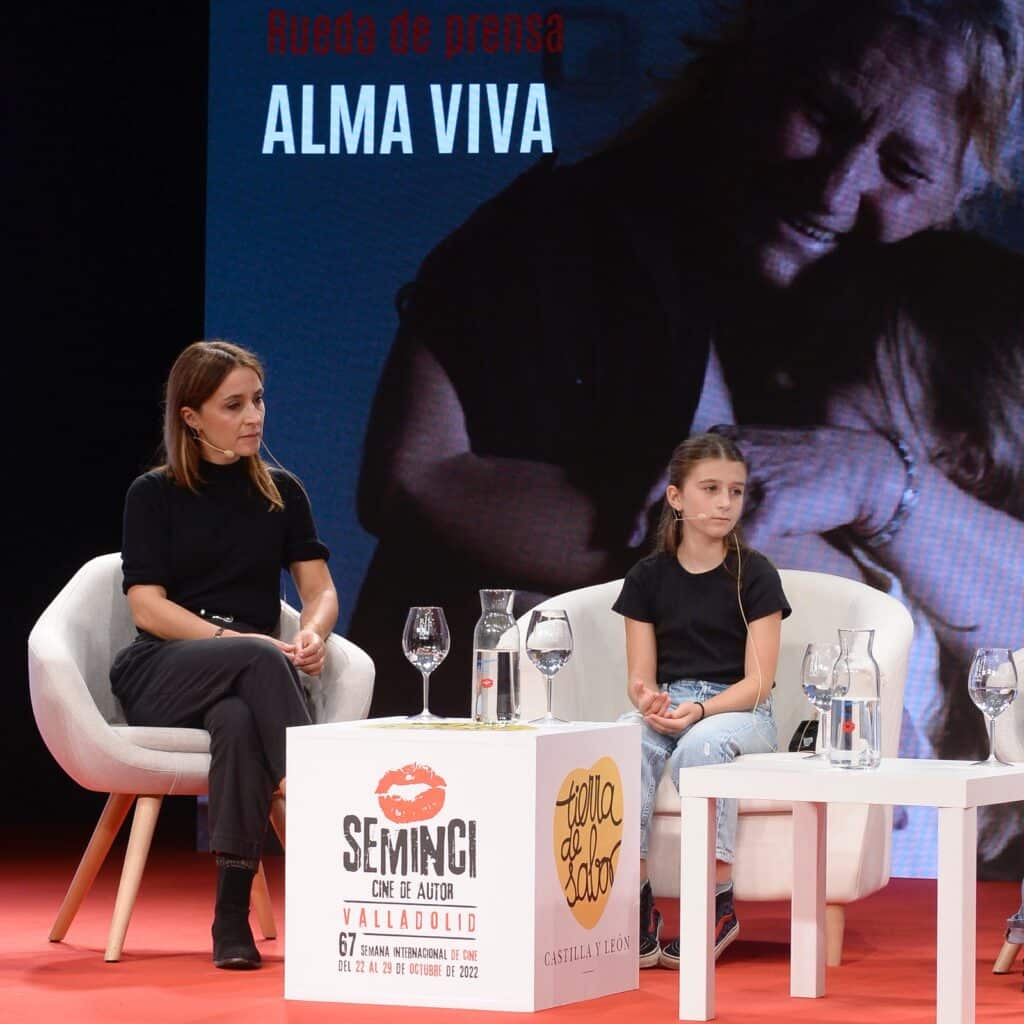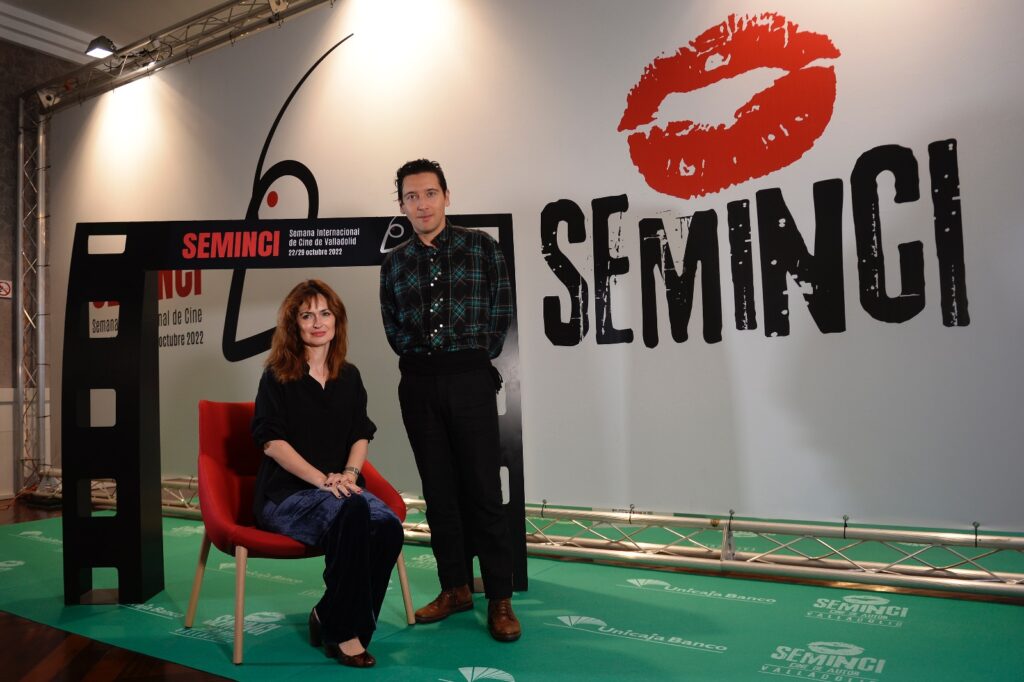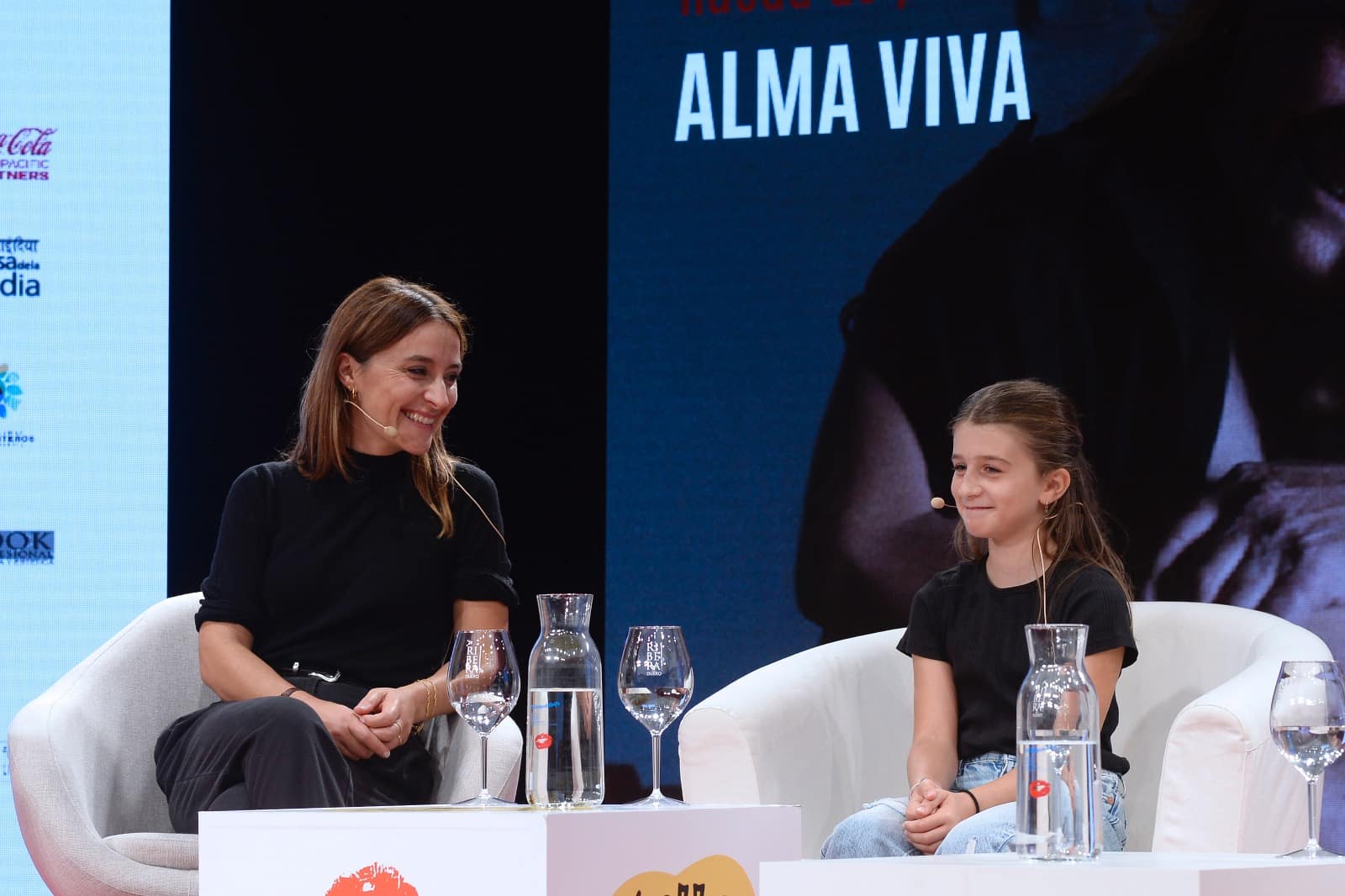By Flávio, the short film that proposes a feminist vision of the role of women in society
It is a rarity at Valladolid International Film Week for the public and the press to start applauding an actress just before the start of a press conference. But today, 24 October, it happened to Lua Michel, the young actress starring in Alma Viva, directed by Cristèle Alves Meira. Both of them, mother and daughter in real life, have explained some of the details of the making of a film shot in the small Portuguese village where the director, who was born in France to Portuguese emigrant parents, comes from.

A village, customs in which reality seems a constant exercise in magical realism, and a family facing the death of the matriarch, accused of being a witch and of an affair with the woman’s ex-wife which, from the girl’s perspective, causes the sudden death of her beloved grandmother.
The choice of Lua Michel was not automatic, however much her mother is the director and however much she had expressed her desire to act in a film. “I was the one who decided to play the role, but before that my mother did a kind of camouflaged casting with me, without me knowing that I was one,” she said.
Alves herself completed the explanation: “I knew that Lua wanted to act, but as a mother it was a great responsibility to offer her a role that she would not be able to play and then have to say no to her. So I half tricked her to see how far she could go and only when I was sure she could do it did I cast her”.

A naturalistic film
Despite the apparently unnatural elements of the plot (witches, poisonings, a girl who seems to inherit her grandmother’s mediumistic abilities…), the result is far from contrived. Nor are the characters stereotyped, which the director attributes to her geographical and cultural knowledge of the setting, characters and culture in which the action takes place: “My parents are from there, I have spent all my summers there and I know these women and their customs very well. But everything was scripted; there was no room for improvisation.
Cristèle Alves mentions Abbas Kiarostami when she says that she likes to make real and credible films and the ability to turn the ordinary into the extraordinary. Nor does she hide her satisfaction at the fact that her film represents Portugal in the race for the Oscars: “I think it’s very important that the story of my family, and of so many families, who had to emigrate, has visibility”.

By Flávio, the feminist point of view
Pedro Cabeleira, director of By Flávio, was unable to be present at the Semana de Cine, but the producers of the film, Pedro Fernandes Duarte and Edyta Janczak-Hiriart, appeared in his place. The short film presents the situation of an aspiring influencer with a small ‘stumbling block’ to attend a date with a famous rapper: her son Flávio. Solution: take him with her.
Both producers have shown their affinity with the feminist approach of the film, and have not hesitated to point out the problem it presents as one of the factors in the decision to produce the project. According to Duarte, “it talks about the role of the mother in society, something I think we should start to change”.
Janczak-Hiriart agrees with this point of view: “It is a very current and very feminist theme. It talks about a mother who nevertheless has other projects and wants to set them in motion”.



























![Logo Foro Cultural de Austria Madrid[1]](https://www.seminci.com/wp-content/uploads/2024/09/Logo-Foro-Cultural-de-Austria-Madrid1-300x76.jpg)








